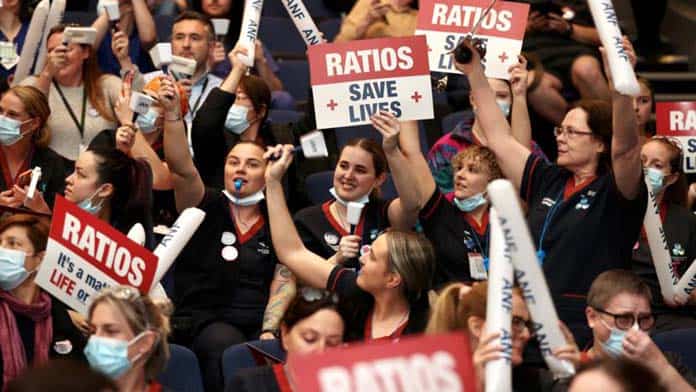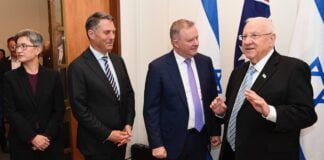Anthony Albanese’s caution and conservatism has seen him rule out dropping the appalling “stage three” tax cuts for the rich in the government’s Budget on 25 October.
Treasurer Jim Chalmers had sent signals that Labor might walk away from the tax cuts, as pressure on the government to abandon them grows.
The tax cuts would cost $243 billion over a decade and flow overwhelmingly to the rich, especially those earning over $180,000.
In their first year the top 1 per cent of income earners would get the same benefit as the lowest 65 per cent combined.
While the Liberals are screaming that Labor would be breaking an election promise, the changes are not popular. Labor supported them before the election as it adopted a small target strategy.
Now, as fears of a global recession grow, Chalmers has been warning of the need for “difficult decisions” on government spending.
But it appears that any move away from its small target approach is too difficult for Labor.
Central banks around the globe are raising interest rates in response to increasing inflation. If this goes on it will push up unemployment and lead to recession. Once again working class people are being made to pay, despite corporate profiteering being the main cause of inflation.
Albanese has hinted that the government might consider changes to the tax cuts in next year’s Budget. But even if it does, Labor is not contemplating spending the money on anything other than reducing debt.
Yet more spending is urgently needed to raise JobSeeker above poverty levels, fix childcare and the hospital system, reduce pressure on living standards and act on climate change and alternative jobs for fossil fuel workers.
Labor should be imposing a windfall tax on gas, oil and coal companies to help pay for this, as their profits go through the roof. Resource and energy exports are expected to hit $450 billion this year, compared to $28 billion in the previous financial year.
Instead it is looking for ways to cut spending, including the move to dump compulsory COVID isolation.
This will allow the government to scrap isolation payments to casual workers without sick pay.
Despite getting an agreement from gas exporters to make sure there was enough supply for the domestic market, Resources Minister Madeleine King has done nothing to force them to bring down prices.
Gas prices have doubled in the last year, driving up electricity prices. But Labor is too committed to the interests of business to impose price caps.
While Labor cries poor, cost is no object for nuclear-powered subs. Price estimates are at least $170 billion yet Defence Minister Richard Marles admitted it will take until plans are finalised next year “to give a sense of cost”.
Albanese marked one year since the AUKUS nuclear subs deal was announced with a visit to Japan to attend Shinzo Abe’s funeral and pay tribute to Abe’s role in establishing the Quad grouping aimed at countering China.
Yet Albanese is now saying he may skip the COP27 international climate summit in Egypt in November, saying he has made too many overseas trips already.
Coal and gas
International embarrassment over the new government’s weak measures on climate action are another reason Albanese may want to stay away.
Despite saying Australia would like to host COP29 in 2024, the Labor government is facing criticism from Pacific island nations, including the former presidents of Kiribati and Palau, for continuing the expansion of coal and gas projects.
Protests during this year’s COP27 summit will be a chance to build the pressure on Labor to act.
And in the face of Labor’s failure to act on wages and the cost of living, we need more strikes to win higher wages.
Teachers in Tasmania have gone on strike for two hours, rejecting a 2.75 per cent pay rise, while the WA Labor government has been forced to increase its pay offer to public sector workers, for some to 10 per cent over two years, following stopwork actions.
Nurses in WA are continuing to strike for improved nurse to patient ratios.
Staff at Sydney University have held their fifth and sixth days of strike action this year, with UTS and University of Newcastle staff also striking.
But the public sector campaign in NSW has stalled, with the teachers’ union calling off a strike on 12 October.
Union leaders are waiting for next year’s NSW election in the hope of a Labor government—but it is an industrial campaign that holds the power to win on wages.
It will take more strikes, protest and struggle to win real change and force Labor to shift from its weak and conservative approach.






